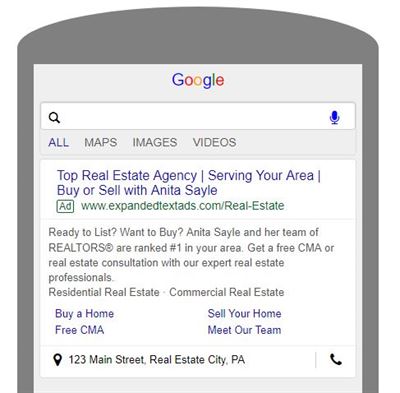Heat Level:  Medium: These tips require some experience.
Medium: These tips require some experience.
Bottom Line: Don’t think of this as an either or situation - Google and Bing ad platforms both have major benefits and combining them can give you the best results for your paid search campaign.
Do This: If you’re considering advertising on Bing:
Look at your current digital ad spend.
Look at your target demographic and see how it compares to Bing’s demographics.
Set up a Bing account and import your campaigns from Google.
Run ads on both platforms for a few months and track your results to see if Bing is a good addition.
 You can use Google and Bing Ads - or just one - to rise above organic search results.When we talk about digital advertising, Search ads are one of the main techniques that comes to mind. Search ads help ensure your website shows up when people are searching for a specific term - who doesn’t want that? It’s easy, it’s clean, it’s direct.
You can use Google and Bing Ads - or just one - to rise above organic search results.When we talk about digital advertising, Search ads are one of the main techniques that comes to mind. Search ads help ensure your website shows up when people are searching for a specific term - who doesn’t want that? It’s easy, it’s clean, it’s direct.
When it comes to Search Ads, Google Ads tend to hog the spotlight. But because Google is everyone’s first choice, it can be competitive and expensive.
So we’re about to let you in on the Internet’s best kept secret: Bing Ads.
Believe it or not, Bing Ads platform does exist and has some pretty surprising benefits you might miss out on by having a Google-only plan.
Both Google and Bing Ads are pay-per-click ad platforms that help you reach your specific audience, drive traffic to your site, and increase revenue (obviously).
Google Ads covers two different networks - the Search Network and the Display Network. The Search Network allows you to make text ads that appear on search engine results page. In other words, these are the hits at the top the page when you search in Google above the results. The Display Network allows you to create visual ads that get displayed on sites all over the internet. You know, the ads that appear on news sites like The New York Times when you’re reading an article.
Bing Ads is a Microsoft-owned platform that covers the Bing, Yahoo, and AOL search engines. Advertising through Bing’s platform allows you to show up on all three search engines as well as their partner sites.
The main difference between Bing Ads and Google Ads is their audience. We all know that Google has a much larger user base. However Bing’s network is large enough that it can’t just be ignored - it’s hard to get an exact stat, but Bing sees something like 900 million searches per day. Nothing to sneeze at.
Some 35% of desktop searching happens on Bing, and about 136 million unique searchers (aka people) use the Bing network. The biggest reason to look into both? Bing Ads reach approximately 63 million searchers who aren’t on Google.
Demographics are another key factor in weighing whether or not to use Bing. About 40% of Bing’s user base are between 35-54 years old, and almost half of the user base has a household income of $75,000 or more. If that sounds like your dream customer base then advertising on Bing is a no-brainer.
Because Bing Ads is a smaller and less in-demand network, prices generally run lower. With most advertisers throwing their full focus behind Google (and social media) ad spend, Bing has less competition so bids tend to run lower overall. WordStream has a great overview of Bing’s costs by industry if you want to learn more.
The short answer is: maybe both! Splitting your ad spend to have a presence on Bing can go a long way, particularly with an older and more educated audience. Bing also allows you to import your Google Ads campaigns directly into their platform, which means setting up similar campaigns on both networks doesn’t take much extra time.
If you (or your advertising team) are familiar with Google Ads, the same rules apply on Bing. You want to make sure you have a well-organized keyword list, compelling ads, and a landing page that delivers on what the ad promised. Mastering that game will serve you well on either (or both) platforms.
If you already have Google Ads, the process of getting started with Bing is pretty simple. You can start by setting up your Bing Ads account here. You can also check out this step-by-step guide to Bing advertising for small businesses to learn more.
If you already have a healthy Google account running, you can just import it into Bing. We recommend keeping your Google and Bing keywords and ads very similar at first, so you can see exactly what the difference is between costs and click volumes between the two platforms. If you change too many things, you might not get a true sense for which search ad platform is better for you.
Not sure where to start with search advertising in general? Don’t go in blind. Both platforms are happy to vacuum up your money without giving you much guidance. Either do a ton of research before starting your search ad campaign, or enlist the help of an experienced Search Engine Marketing professional.